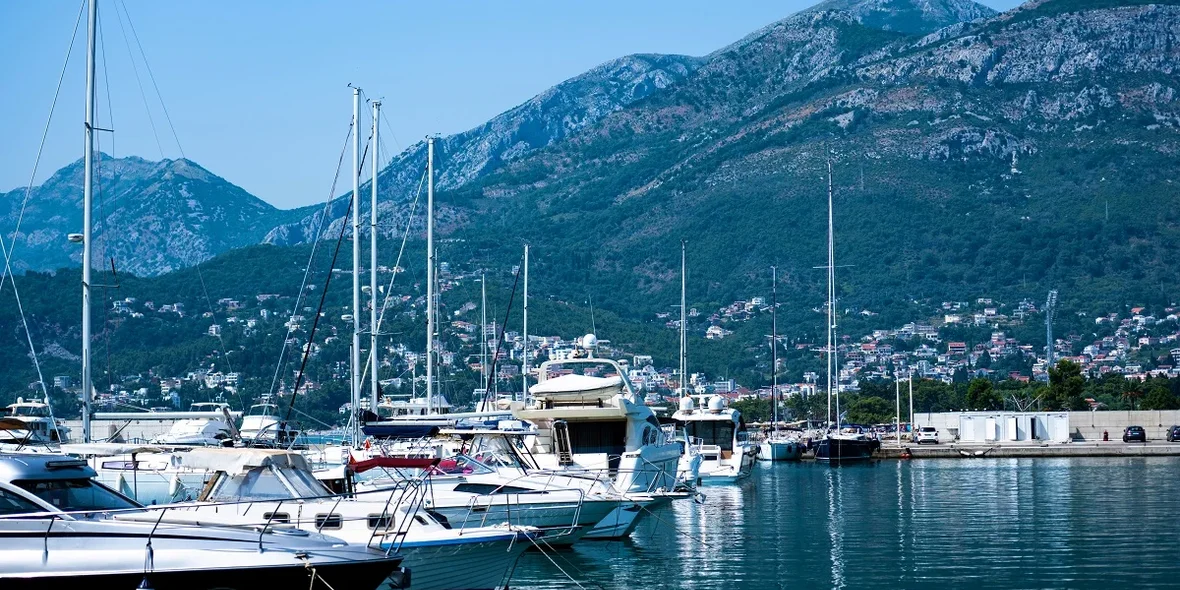
Property Taxes in Montenegro
Montenegro is one of the most fascinating countries in the Balkan region. The majority of its territory is mountainous, yet it has access to the Adriatic Sea along a fairly extensive coastline. In recent years, interest in the country has experienced noticeable fluctuations due to the pandemic. However, five years later, this interest has recovered, and the relatively moderate results of 2023 were surpassed in 2024.
Foreign direct investment in Montenegrin real estate in 2024 reached 455 million euros, 1.7% less than in 2023. Despite a sharp drop of 9% in the first half of the year, a strong jump in the second half of the year narrowed the gap. Citizens of the following countries were the most active buyers of Montenegrin real estate: Serbia, Turkey, USA, Russia, and Germany.
However, the volume of investment has shifted compared to 2023. Real estate investments from Russia decreased by 32%, Germany by 30%, Serbia by 12%, while Turkey recorded an increase of 21% and the USA by 11%.
In this article, we will take a detailed look at taxes in Montenegro that apply to property owners, as well as all the changes that may affect the tax burden, such as the introduction of a progressive property tax.
Purchase Taxes
The main tax payable when purchasing real estate on the secondary market is the Property Transfer Tax. The rate is 3–6% of the property’s value, determined either by the transaction price or the cadastral valuation. The tax must be paid within 30 days after the transaction is registered in the cadastral registry.
On the primary market, such as when buying a new apartment in Montenegro or house from a developer, the Property Transfer Tax does not apply. Instead, a 21% Value Added Tax (VAT) is charged, but it is paid by the developer.
A progressive tax scale applies to real estate purchases on the secondary market. The rates depend directly on the property’s value and for expensive property, the tax percentage will be higher. The main benefit of progressive tax is increasing taxation on the premium real estate sector while maintaining the standard rate for mid-range and lower-priced housing.
Annual Property Tax in Montenegro
Property owners should pay an annual Montenegro property tax (Real Estate Tax). The rate ranges from 0.25% to 1% of the cadastral value of the property. The specific rate is determined by local municipal authorities and depends on the following factors:
- Property type (residential, commercial, land, etc.)
- Location (properties in tourist areas or large cities are taxed at a higher rate)
- Purpose of the property (commercial and rental properties are taxed at a higher rate)
Tourist tax can be canceled and property tax can be significantly reduced (up to 50%) if you have a residence permit or Montenegrin citizenship and use the property for personal residence.
Taxes on Rental Income in Montenegro
When renting out real estate for a long-term lease (e.g., for a year), the owner is required to pay Montenegro income tax. Since 2022, the tax rate is 15% of the taxable base. However, 30% of the total income is exempt from taxation as presumed expenses for maintenance and depreciation, and the tax is levied on the remaining 70% of the income.
Example calculation:
- Monthly rent: €150
- Annual income: €150 × 12 months = €1800
- Taxable portion: €1800 × 70% = €1260
- Tax: €1260 × 15% = €189
Local municipalities may levy additional fees. For example, in Bar, there is an additional tax of 13% on the amount of the primary tax. Based on the example, this would amount to €24.57, increasing the total tax liability to €213.57.
A separate tourist tax is not charged in Montenegro. Instead, a tourist fee must be paid by all foreign visitors to the country. The fee varies depending on the municipality, ranging from €0.1 to €1 per person per day. Children under 12 are exempt from the fee, and for teenagers aged 12 to 18, the rate is reduced by 50%.
The registration and payment of the tourist fee must be done within 24 hours after entering the country. If the tourist stays in a hotel or rented apartment, the responsibility for registration and payment of the fee lies with the host. In the case of independent accommodation, the tourist must contact the local tourist office or municipality for registration and payment.
The owner must register the rental contract with the tax authorities at the location of the property. The tax return must be submitted annually, reporting rental income from the previous year. The tax on rental income is typically due by March 31 of the following year.
Inheritance and Sale Taxes in Montenegro
Tax residency ensures that Montenegro capital gains tax on the sale of real estate is only payable if the property’s value has increased since its purchase. The tax rate is 15% of the profit made. However, no tax is charged if the owner has used the property as their primary residence for more than three years.
The inheritance and gift tax on real estate in Montenegro is 3% of the market value of the property being transferred. The tax is not levied when the property is transferred to close relatives (children or spouses).
The tax on the sale of real estate, including cases of gifting and inheritance, must be paid within 15 days of the tax authority’s decision to impose the tax. In case of a delay, a penalty of 0.03% of the property’s value is charged for each day of delay.
Author
I write informative articles about real estate, investments, job opportunities, taxes, etc.
























